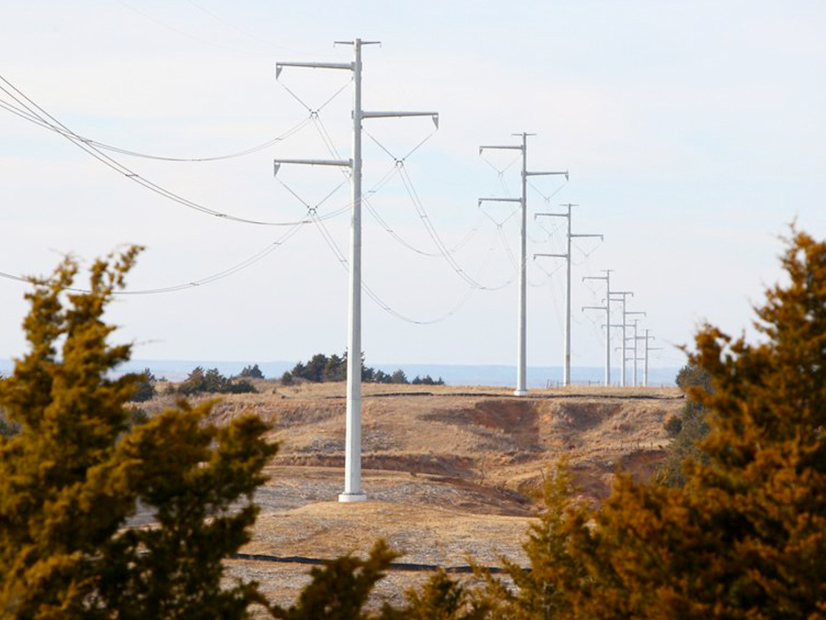
FERC acted correctly in reversing a retroactive waiver it had granted SPP over collecting transmission upgrade costs, the D.C. Circuit Court of Appeals ruled Friday, even as it acknowledged its order granted a “free pass” to some users of the system.
The commission had granted SPP a retroactive waiver of its tariff in 2016 so that it could invoice transmission service customers for Attachment Z2 credit payment obligations for 2008-2016 (ER16-1341). But it reversed course in 2019, saying its original decision was prohibited by the filed-rate doctrine and the rule against retroactive ratemaking. (See FERC Reverses Waiver on SPP’s Z2 Obligations.)
Attachment Z2 promised transmission upgrade sponsors would receive credits from any upgrade users whose service could not be provided “but for” the upgrade. But section I.7.1 of SPP’s tariff also required the RTO to invoice the charges monthly and to make any adjustments within one year. Because of software problems, it took SPP eight years to implement the attachment, during which the RTO did not invoice for the upgrade charges.
FERC issued a voluntary remand of the waiver following a D.C. Circuit ruling in a separate waiver case involving PJM. (See Duke, ODEC Rebuffed on Polar Vortex Gas Refunds.) The commission ordered SPP to refund credit payment obligation amounts dating back to 2008, except for the one-year billing adjustment limit allowed in the tariff.
Oklahoma Gas and Electric (NYSE:OGE), which had funded upgrades to serve wind farms in western Oklahoma, asked the D.C. Circuit to reinstate the waiver, saying SPP had provided notice of the upgrade charges through Attachment Z2, the stakeholder process and notations in its study reports.
But the court ruled that none of those sources provided the formal notice to satisfy the filed-rate doctrine (20-1062, Oklahoma Gas and Electric Company v. FERC).
“Although Attachment Z2 was an addition to the filed rate that set forth the possibility of upgrade charges, it did not provide notice that upgrade users could be charged outside of section I.7.1’s billing requirements,” the court said. “The other two alleged sources of notice — the stakeholder process and SPP’s study reports — cannot provide sufficient notice. Whatever information they might have provided, they were not filed with the commission, and a filing ‘is required for all rate changes.’”
OGE and SPP also contended that FERC’s reversal of the waiver violated the cost-causation principle, which requires “all approved rates [to] reflect to some degree the costs actually caused by the customer who must pay them.”
The court disagreed. “The petitioners have provided no authority, nor have we found any, to suggest that a filed rate, which FERC found to be just and reasonable, can be waived because FERC later determines that its application violates the cost-causation principle. Cost causation is a principle for ratemaking, not an abstract principle that can trump a filed rate,” it said.
It acknowledged that its ruling means “users who benefited from the upgrades received a free pass” during the period for which SPP did not invoice. But, it added, “the filed-rate requirement is stringent and admits of no equitable adjustments by the commission or this court.”
“The outcome here should serve as a cautionary reminder to parties that, if circumstances change, they should take action at the outset, such as by seeking to amend the tariff or requesting prospective waivers from FERC to act in contravention of a filed rate,” the court said.
SPP responded to FERC’s reversal in June 2019 with a compliance filing that proposed a preliminary framework by which the RTO would unwind and resettle credit payment obligations assessed under Attachment Z2 and describing “the necessary assumptions and challenges associated with such unwinding and resettlement.” The commission has yet to act on SPP’s request.
“At this juncture, it is fair to say that there is no end in sight to the long and tortured history of Attachment Z2,” SPP told the commission in a separate application for a partial stay of its order, in which it requested settlement proceedings “to consider the numerous overlapping and interdependent issues pending.”
FERC in 2020 did approve the RTO’s request to replace Attachment Z2’s revenue credits for sponsored transmission upgrades with incremental long-term congestion rights (ER20-1687). (See FERC Approves SPP’s 2nd Go at Dropping Z2 Credits.)



